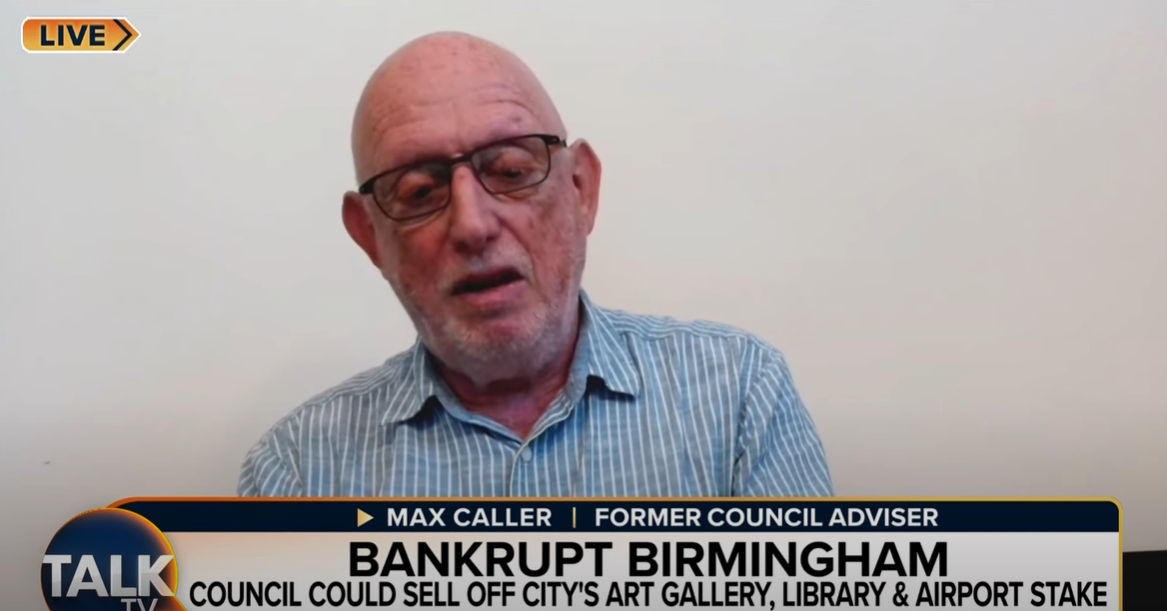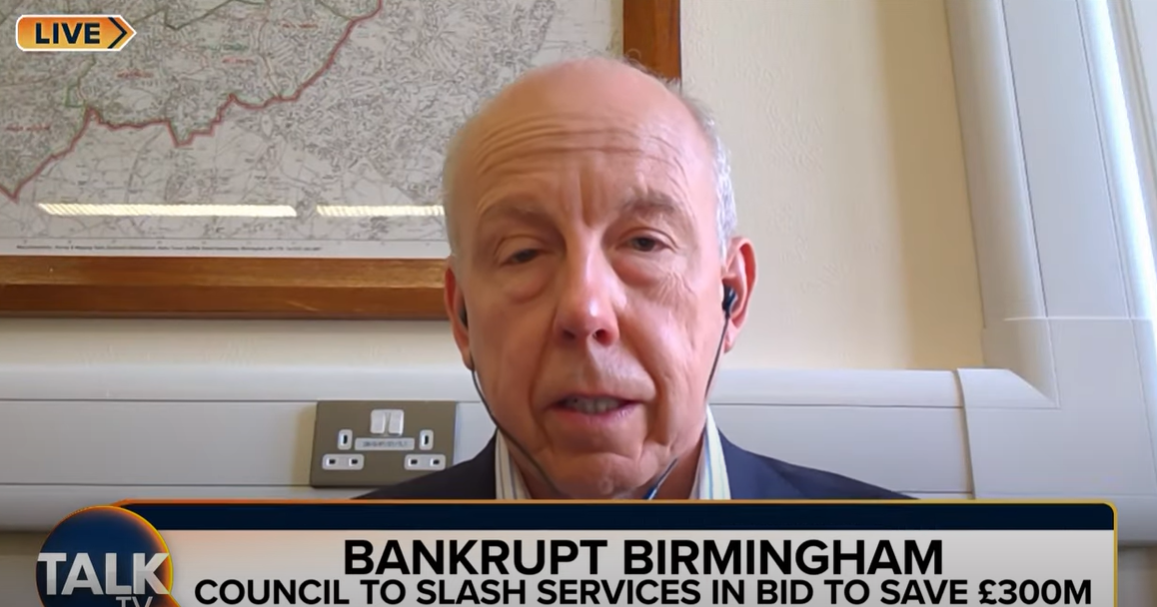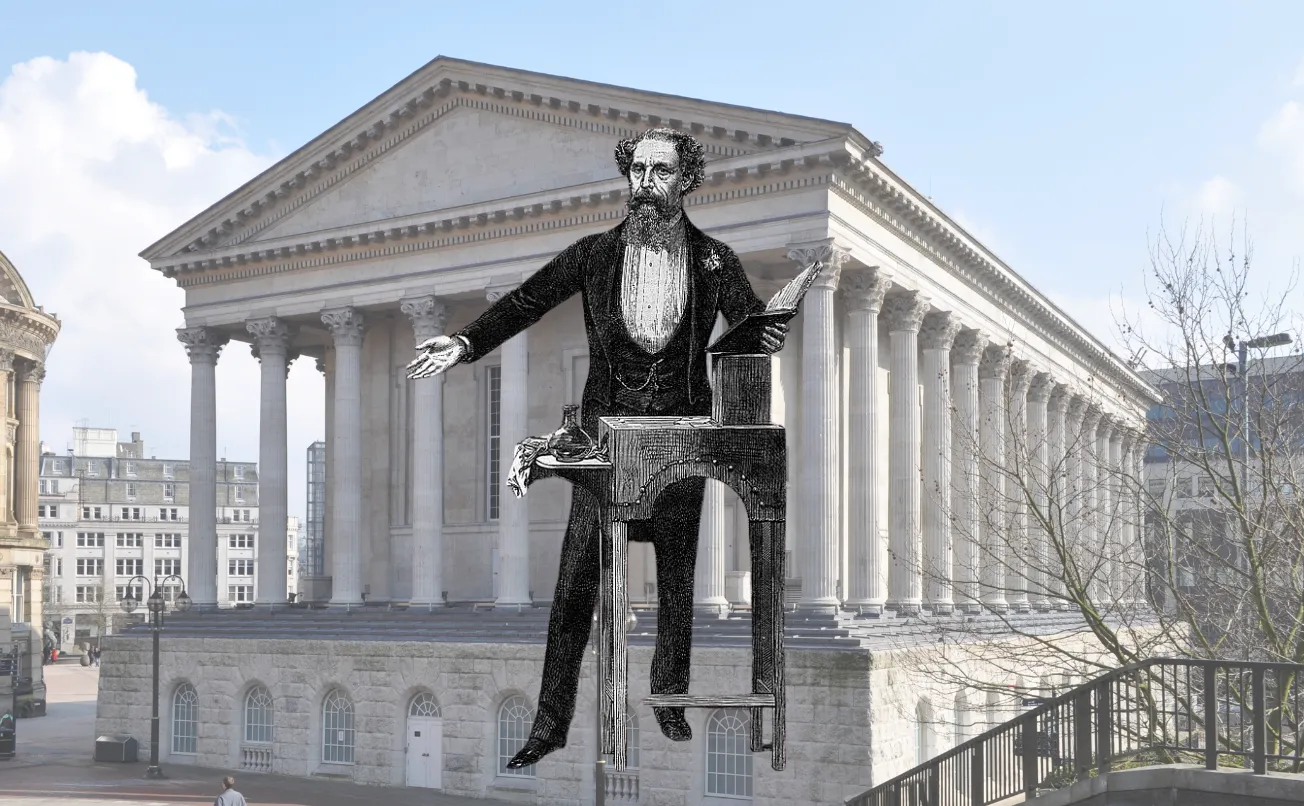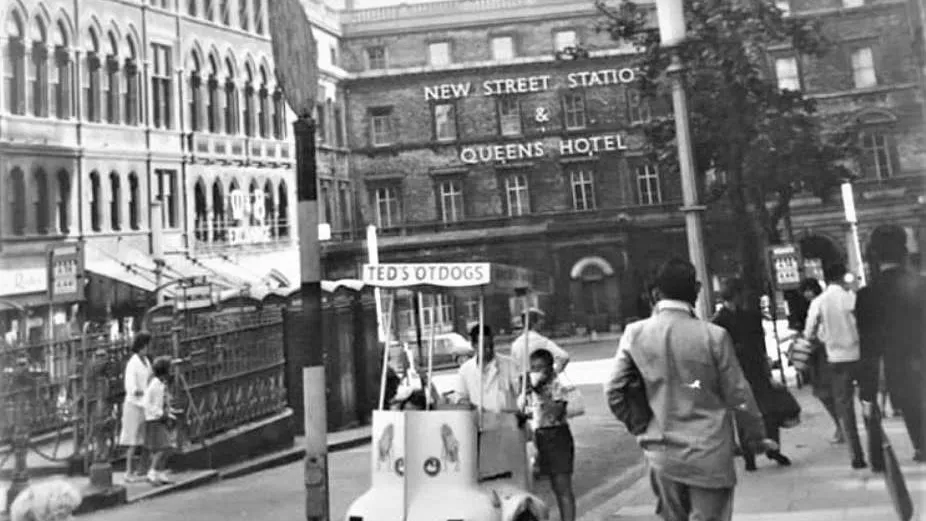Almost a year ago to the day, on a Tuesday morning during a late summer heatwave, I sat in a room at Birmingham City Council. Arranged neatly in horseshoe formation before me were 11 grim-faced cabinet members. The breeze was at a premium and the small amount that had crept in through the jarred windows quickly turned still. To my surprise, the only person who seemed calm and collected was deputy leader Sharon Thompson, who was poised to deliver the killer blow. She had been in her role just three-and-a-half months. Council leader John Cotton — who was just as new to his position — was on a family holiday in New York. The job of announcing that the organisation was effectively bankrupt had fallen to her.
The previous evening, emails between senior council officers had confirmed disaster: a Section 114 notice would be issued. This, probably the most serious notice a council can make, notifies residents and the government that a local authority is in dire financial straits and has no option but to ask for help. For the last year, Birmingham has been in the shadow of that day.
Thompson’s announcement set into motion a crisis response. Commissioners have been installed to make tough decisions. More than £300m of cuts to public services between now and 2026 were announced. So was a 21% hike in council tax. Assets are being sold off at a discount. Arts funding will be scrapped and libraries closed. Bin collections will go to a fortnightly schedule and school transport for kids over 16 with special educational needs axed. Almost half of the budget for services for young people is set to be wiped.
So, what if — just if — there had been a mistake? What if, as an op-ed in The Guardian read last week, everything we’d been told about Birmingham’s bankruptcy is “wrong”?

Last week, a report by researchers at the University of Sheffield made exactly that claim. It cast serious doubt on the accepted reason for the financial crisis: equal pay claims. Last year, the council was estimated to owe £760m, an amount the Audit Reform Lab (ARL), a collective of accountants and academics, claim was “overstated” and “prematurely disclosed”. James Brackley, an academic for ARL, was the author of the Guardian’s piece.
The ARL report claimed the apparently overstated figure took attention away from ongoing financial pressures due to central government cuts and the increased demand on services due to Covid. Moreover, it was simultaneously a distraction from the botched implementation of a digital HR and finance system that had caused chaos to the organisation’s accounts. They argue drastic cuts have been “rushed” through. As a result, the city will suffer.
The report has been controversial. The firm that audits the council, Grant Thornton, say the unions who have commissioned the report have a vested interest because they represent equal pay claimants. They also say that the researchers are relying only on publicly available information; they do not have all of the facts at hand. Conservative members have echoed this view, adding that the city council’s financial troubles started long before 2023 and the blame lies at Labour’s door. Labour, unsurprisingly, is more open to the findings. Mayor Richard Parker says they should be given “full consideration”.
Enter the axe
By now, we are all well aware of the troubles facing Birmingham. The story in its most basic form is this: the council failed to get on top of long-running equal pay claims and the bill ballooned. Dating back to 2017, employees who worked in different roles but within the same pay grade were being unfairly remunerated. Often this affected workers in women-dominated roles (like administration assistants and dinner ladies) who missed out while workers in male-dominated roles (like refuse collection) received perks such as the option to clock off when they’re finished while being paid for a full seven-hour shift. This triggered a series of equal pay claims, sometimes via unions, sometimes via no-win-no-fee lawyers.
The result was a financial black hole: £760m. A few months after the figure was revealed, the council called the Section 114. The notice was announced by Thompson on that warm September morning. The person responsible for issuing it was chief finance officer Fiona Greenway who wrote the report that signed off Birmingham’s fate. In it, she cited the main reason behind the decision was “the cost of providing for Equal Pay claims.”

Two weeks later, 118 miles away in Westminister, Michael Gove set a plan in action. Standing in parliament he made a statement about Birmingham City Council in which he claimed the equal pay liability could even be “much higher” than the current £760 million figure. Gove also told parliament the auditors had assessed the equal pay figure. They hadn’t. He then launched a five-year intervention to solve the council’s “serious” financial and governance issues. A team of commissioners led by Max “the axe” Caller, who was known for his ruthlessness when straightening out local authorities, would be planted in Birmingham. A local inquiry would be launched “in due course”.
Five months later, Max’s axe was swinging. On 5 March, £149m of cuts to services were agreed by Birmingham’s leaders. Today, a draft for the next budget is being drawn up, in which a further £195m worth of savings needs to be found. That figure, says lead researcher and co-author of the ARL’s report James Brackley, “will only get bigger”.
Earlier this month, The Dispatch visited attendees of Birmingham’s now-endangered adult day care centres, facilities which the likes of 53-year-old Lisa Winkles have relied on for most of their lives. Lisa has been attending Harborne Day Centre in Quinton since she was 21, which shared the responsibility for her care with her 86-year-old mom Maureen. Due to the massive hole in Birmingham’s budget, the council is now considering proposals to close four of its nine day care centres. Harborne is one of those under threat. “I know I’m old,” Maureen told us, “but I’ve never felt it on the inside. This has really knocked the stuffing out of me.”
It’s easy, when faced with all these reports, figures and jargon, to start to view the prospect of the cuts in the abstract. It seems as though every day in Birmingham for the past year has brought a new number for us all to be horrified by. £195 million in savings. Section 114. £750 million in asset sales. And so on. After a while, the picture begins to blur. But the potential victims are people like Lisa and Maureen. “She’ll have to go into a home if I can’t cope,” Maureen told The Dispatch.
The other crisis
Some councillors have been scrutinising the £760m figure since well before the Audit Reform Lab published its report. Lib Dem veteran Paul Tilsley told the Guardian in May: “This figure is ruining this city. We’re going to see the real basic infrastructure of the city, things like libraries, closed and sold off, and when they’re gone they can’t be replicated.” Even Max Caller has suggested the real bill could be as low as £250m but has told councillors it is “pointless” to ask “esoteric questions” when the bigger number is merely a “maximum potential liability”.
In February, Labour Councillor Fred Grindrod told his colleagues the upcoming budget cuts were “economically illiterate”. Moreover, Grindrod identified what he saw as the real root of the problem, calling the council’s HR and finance system Oracle Cloud Fusion “the single most contributing factor to the mess we’re in”. His assessment isn’t unique.
The ARL report has given the situation a whole new level of scrutiny. The Telegraph and The Financial Times are among the national papers that have covered the story (and it will soon have the attention of government ministers via Richard Parker). It’s difficult to succinctly summarise a 45-page report by academics but in short, the ARL argues that Gove’s directive should be scrapped. Instead, it claims, the council should base its recovery plan on the costs associated with the botched implementation of Oracle and extend its support until 2028.

The Dispatch has reported extensively on the Oracle debacle before. The system, which was implemented in 2022, was supposed to automatically process the council’s incoming and outgoing payments to make everything more efficient and to save the council money. However, officers allegedly took the decision to adapt the backend programming of the off-the-shelf product and fit it with their own antiquated systems rather than the other way around. The result was chaos.
Shadow cabinet member for finance Meirion Jenkins likens the situation to “a ship whose navigation has failed”. He says the council has barely identified half the savings that need to be made on the current account and there are debts owed to the council that may never be collected. A team of about 30 officers is manually tracking payments on spreadsheets. The cost to try to fix the crisis is “collosal”.
Moreover, The accounts for 2020-21 and 2021-22 are a mystery — they cannot be signed off or audited. Gove then, was incorrect when he said Grant Thornton had assessed the estimated £760m equal pay claims bill. The auditors have always been clear that the accounts for these two years remain unaudited.
The ARL argues that, instead of making savings against the much bigger estimated equal pay claims liability, the council should base its recovery plan on the costs of its failing Oracle IT system. The implementation of Oracle in 2022 was so botched that the overspend and written off savings combined come to £250m. The researchers argue that because this is a short-term cost, basing the recovery plan on the Oracle figure would remove tens of millions of pounds of real terms costs from the budget and avoid the need for such drastic cuts to services.
“Watch this space,” Brackley tells me. “There has to be some movement sooner or later. They are drawing up the next budget for current savings of £195m — that number will keep getting bigger. Labour will have to get off the fence and decide whether to stick with Gove’s plan or not.”
The response
As well as several articles in the national press, the report has unsurprisingly got the attention of the region’s senior Labour politicians. John Cotton has been cautious, neglecting to comment directly on its findings. In a statement, he said “report after report shows that there's a national crisis in local government caused by 14 years of neglect from the previous Tory government.” Richard Parker says it should be given due consideration and told The Dispatch last week that he will discuss the findings with the local government minister in early September.

As for the auditors, they were in conversation with the ARL in the months leading up to the report’s publication, indicating inaccuracies they wanted to be corrected.
They told us:
“We engaged with the report's authors at length and in detail to clarify its factual misunderstandings but, despite them making wide-ranging changes to the earlier drafts of the report, it still maintains assumptions and allegations which are incorrect.”
Moreover, they claim the ARL is reliant on only publicly available information and say that without “reference to accounting records and other confidential information” the researchers are not in a position to accurately diagnose the problem.
Jenkins agrees, saying that even if the auditors don’t have access to all of the accounts, they have the “inside track”. He also trusts the council’s finance officer to make a “prudent” estimate of the equal pay liability. Regardless, he adds, even if you put equal pay to one side, the council’s finances are in a “dire state”.
These responses aren’t satisfactory for James Brackley. He thinks Grant Thornton’s claim that the ARL are working with insufficient information doesn’t hold water. “That is a very ambiguous comment, they’re the ones who have put that information in the public domain so it is on them to correct the record if it’s not right.”
Max Caller has spoken out too, saying the ARL report contains “misconceptions”. The council’s problems are “actually about their failure to deliver the budget savings over a number of years,” he adds. But again, Brackley is doubtful. The report states that funding cuts over more than a decade have contributed to Birmingham’s struggle to balance its books and an increase in demand post-Covid has amplified its need. Furthermore, he struggles to see how Caller’s comment contradicts the report. The ARL’s position earlier in the year, was that if the commissioners rush ahead with cuts then they are going to end up with more unexpected costs. “That’s what has happened,” he says.
Meanwhile, remember that “local inquiry” that Gove promised? John Cotton promised one too. Neither has been launched. A year on from the Section 114 notice being issued, Birmingham remains in the dark about what really happened.








Comments